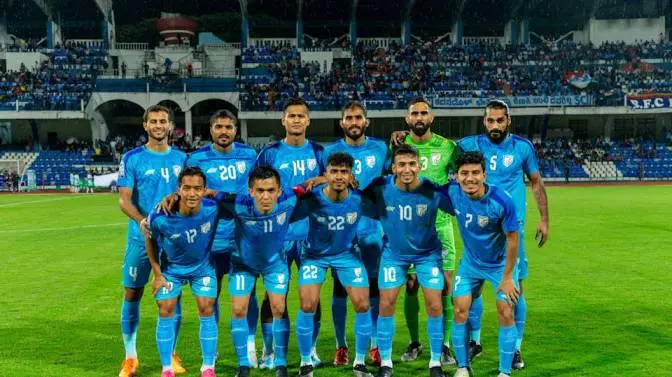The view is not bad from Eric Jokisch’s 16th-floor apartment in Seoul, South Korea. He can see cherry blossoms in bloom in the trees, and can locate the former stadium of his baseball team, the Kiwoom Heroes. But Jokisch cannot leave.
“It’s kind of like you’re in prison,” he said in a telephone interview over the weekend. “You see everybody else out there walking around and you wish you could be out there.”
Jokisch, who pitched for the Chicago Cubs in 2014, is in self-isolation as the Korean Baseball Organization — with the impact of the coronavirus outbreak dissipating in South Korea — cautiously stirs to life again.
Forty-one floors above Jokisch, another Heroes pitcher, Jake Brigham, is also all alone, fulfilling a government requirement of a 14-day self-isolation period for overseas arrivals. The pitchers were with their families in the United States before coming to South Korea.
“I’ve got a foam roller and some weights and bands, but honestly it’s hard to even self-motivate enough to get to do that after a week of doing it every day,” said Brigham, who pitched for the Atlanta Braves in 2015. “I’m doing as much as I can to try and keep some sort of muscles in my body. But it’s challenging for sure.”
The return of baseball — the K.B.O. season was originally to start on March 28 — remains somewhat precarious in South Korea. The country had a one-day peak of 909 new cases of Covid-19 on Feb. 29, and while it has significantly reduced the spread — to just 64 new cases on March 22 — there are indications this month of a slight uptick.
The K.B.O. plans to resume its exhibition schedule on April 21, but for now its teams are staging intrasquad games that are streamed online. Some players wear masks on the field.
“It would be weird to wear it during an intrasquad or a practice if I’m throwing,” said the Hanwha Eagles’ Chad Bell, a former Detroit Tigers pitcher who is in self-isolation in Daejeon, South Korea. “But if that’s something they want us to do at the time, then yeah. I’ve got 30 or 40 of them in my room that I’ve received from the team, so I’ve got them to wear when I’m ready to get out of the apartment in the next few days.”
In mid-February, when the pandemic hit South Korea hardest, the Eagles were in Phoenix for spring training. At that point, Bell said, his league’s schedule was upended, but Major League Baseball was proceeding as planned.
“I was like, ‘If I’d have been playing in the States, I’d be playing,’” Bell said. “Now I’m sitting here and we’re going to be playing well before them. But when it first started, we were like, ‘There’s no way.’”
Latest Updates: Coronavirus Outbreak
- Glimmers of hope, and new challenges, as the world struggles to beat back the virus.
- A top White House official warned in January that a pandemic could imperil millions of Americans.
- Britain is gripped by concerns for the health of its prime minister, and questions of succession.
K.B.O. teams do not train in the same area, and while most players returned to South Korea when the league shut down in early March, five of the league’s 10 teams allowed their foreign players to return to their homes. Those who did — like Bell, who went to Tennessee, and Brigham and Jokisch, who went to Florida — were tested for Covid-19 when they arrived in South Korea in late March, and then began their 14 days of isolation.
“The teams check everybody’s temperature every day when they get to the field, just trying to do everything they can to monitor everybody’s health, because as we saw in the States, in the N.B.A., one guy gets it and they have to shut it down,” Bell said. “They’re being very proactive over here, but still that’s the main worry: One guy gets it, and then you’re basically on hold for three weeks right in the middle of the season.”
With their lives on hold, the players have turned to their translators for food and grocery delivery. They cook for themselves, talk to their families as soon as they wake up and again before bed, and search for ways to pass the time. Jokisch watched the Netflix series “Tiger King” on his overseas flight, and is trying to get into the “Ozark” series. His translator brought him a “Toy Story” puzzle, and he is almost finished.
But the lull of self-isolation comes with a nagging sense of the unknown, especially for pitchers.
“I’ve rarely taken two weeks off from throwing in general, let alone when we’re pretty much ready to get going,” Jokisch said. “We just don’t have anything to go off of. I guess you just have to listen to your arm and your body, but I know we need to push it as fast as we can to get ready to go, because this season could start here soon.
“I can’t imagine what it’s like for guys in the States. They have no idea right now. What exactly do you do? Do you take time completely off? Do you try to stay going? It’s such a wild time.”
If the season were to begin with games played without spectators, it would greatly stifle the atmosphere in a league known for sustained chanting and singing by fans, no matter the score. But, Brigham said, the league would still be an appealing alternative for American fans craving baseball.
“I understand there’s a lot going on and it’s terrible,” said Brigham, who is starting his fourth season in the league. “But the K.B.O. has wanted to boost their exposure worldwide, and if they can do it in a safe manner, there’s a real opportunity for the Korean players to have that worldwide exposure, so people can understand there are some incredibly talented people in this league.”
Some U.S. major leaguers have gone to South Korea and returned with a higher profile, like first baseman Eric Thames of the Washington Nationals and pitcher Josh Lindblom, who signed a three-year, $9.125 million contract with the Milwaukee Brewers in December after winning the K.B.O.’s Most Valuable Player Award.
But the league also has budding South Korean stars — Brigham mentioned teammates like shortstop Ha-Seong Kim and center fielder Jung-hoo Lee — who could be major leaguers someday. In a season unlike any other, they could emerge as more than an occasional Twitter curiosity.
“The foreign guys, we’ve had our opportunity, we’ve all played in the big leagues for the most part,” Brigham said. “I’m over here providing for my family, and I love the opportunity. It’s been incredible.”
He added: “But for the Korean guys, if they can get American fans to really see them for more than just the occasional bat flip that comes across on Pitching Ninja,” he added, referring to a popular baseball Twitter account, “it could be really good for these guys.”
In the meantime, in that 57th-floor apartment high above Seoul, Brigham trains on his own for a season he expects to be played, but without a scheduled opening day. Down on the 16th floor, Jokisch does the same, waiting and wondering when the league will really get going.
“It seems like early May, but it also seemed like late April,” Jokisch said. “Every week it kind of gets pushed back. The cases are down quite a bit here, but it’s just about trying to figure out when it’s OK. And that’s kind of the problem all over the place: ‘When is it OK?’”









